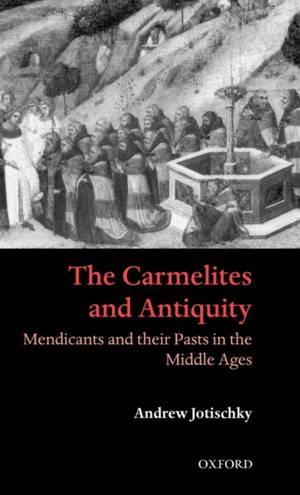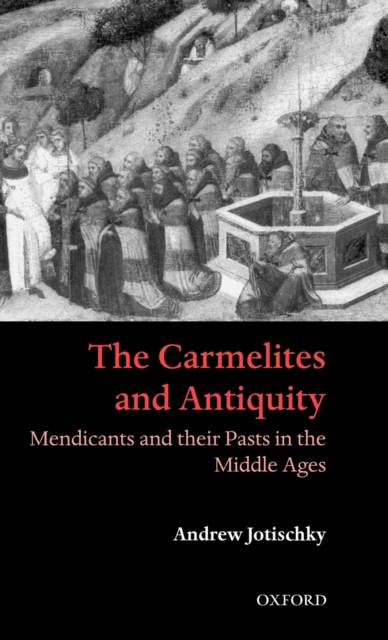
Door een staking bij bpost kan je online bestelling op dit moment iets langer onderweg zijn dan voorzien. Dringend iets nodig? Onze winkels ontvangen jou met open armen!
- Afhalen na 1 uur in een winkel met voorraad
- Gratis thuislevering in België vanaf € 30
- Ruim aanbod met 7 miljoen producten
Door een staking bij bpost kan je online bestelling op dit moment iets langer onderweg zijn dan voorzien. Dringend iets nodig? Onze winkels ontvangen jou met open armen!
- Afhalen na 1 uur in een winkel met voorraad
- Gratis thuislevering in België vanaf € 30
- Ruim aanbod met 7 miljoen producten
Zoeken
The Carmelites and Antiquity
Mendicants and Their Pasts in the Middle Ages
Andrew Jotischky
Hardcover | Engels
€ 394,95
+ 789 punten
Omschrijving
The Carmelites, the only contemplative religious order to have been founded in the Crusader States, first emerged as a group of hermits living on Mount Carmel, a site associated with the prophet Elijah. Soon after migrating to the West, in the mid-thirteenth century, they began to develop the geographical associations into a complex historical tradition based on the claim to have been founded by the prophet. Carmelite historical myths were first developed as a response to the threat of supression, but increasingly came to form the basis of a distinctive ecclesiology and mission. This book, which is the first full-length study of the Carmelite historical legacy, examines the circumstances under which the traditions were constructed, describes the evolution of the traditions themselves from the thirteenth to sixteenth centuries, and places them within the wider context of historical writing by religious orders, and attitudes to the past more generally in the later Middle Ages.
Specificaties
Betrokkenen
- Auteur(s):
- Uitgeverij:
Inhoud
- Aantal bladzijden:
- 384
- Taal:
- Engels
Eigenschappen
- Productcode (EAN):
- 9780198206347
- Verschijningsdatum:
- 26/09/2002
- Uitvoering:
- Hardcover
- Formaat:
- Genaaid
- Afmetingen:
- 163 mm x 220 mm
- Gewicht:
- 553 g

Alleen bij Standaard Boekhandel
+ 789 punten op je klantenkaart van Standaard Boekhandel
Beoordelingen
We publiceren alleen reviews die voldoen aan de voorwaarden voor reviews. Bekijk onze voorwaarden voor reviews.











